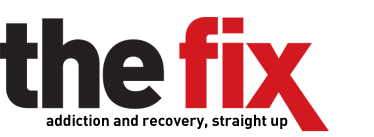
March 10, 2017 |
Remove the Barriers to Addiction Recovery

By John Kelly with James R McKay and Alexandra Plante 02/23/17
Article Originally Published in The FixLong-term recovery can often be a challenge to maintain when the surrounding environment gives little ongoing support for the challenges faced by individuals trying to get their life back on track.
Unlike recovery from other conditions, addiction packs the added burdens of stigma and a multitude of concrete barriers that make sustained recovery more difficult. People with addictive disorders face discrimination in educational, employment, housing, health care and many other areas that are critical in fostering the motivation required to maintain recovery. Policy-makers and society in general would do well to consider the deleterious impact that these factors have on the individual as well as the larger community. John Kelly, James McKay and Alexandra Plante call for changes in the way that we think about and respond to individuals in recovery…Dr. Richard Juman
After a 16-year battle with a prescription opioid use disorder, Ryan Michael has now been in recovery for over 12 months.
But with a lack of job prospects and direction at 34 years old, back at home living with his parents, he now faces the grim reality of a troubled educational history, lack of a consistent work history, and financial debt from outstanding legal fees. Ryan contemplates what his next steps should be, as he tries to find his place among mainstream society after dropping out of high school more than a decade ago. A once purely optimistic and upbeat future outlook towards life after addiction, is now a hazy view of the future, tempered by the sheer number of obstacles he is facing in moving forward and reintegrating back into society.
“I feel like I’m up against a wall. I want to rejoin society, but society won’t let me in. Other people my age have well-established careers already and are saving for their children to go to college. In contrast, I didn’t even have an email address to my name up until last year when I left rehab. Saying I am behind the curve is an understatement.”
While tragic, this grim reality is not uncommon. Long-term recovery can often be a challenge to maintain when the surrounding environment gives little ongoing support or rewards to address the unique challenges faced by individuals trying to get their life back on track.
Statistically, it takes many years and multiple attempts for individuals to achieve full sustained remission from a substance use disorder.While progress has been made across the addiction treatment and recovery field to increase the speed at which individuals obtain remission from substance use disorders, working to make recovery more inviting and easier to sustain continues to be a challenge.
In an effort to increase sustained recovery outcomes, the key may not be in traditional forms of behavioral therapy or medications alone, but found in a larger focus on the mobilizers of motivation over time—the very motivation that would propel individuals through the many obstacles experienced in recovery, and set them up to build the foundations necessary for a happy and fulfilling life.
How do we sustain the motivation needed for individuals to achieve long-term recovery?
Sustained motivation in recovery often becomes a challenge, especially when the immediacy of the negative impacts of substance use begin to recede. The motivation needed for recovery is also challenged by a lack of sufficient rewards available in the environment. Over time, substance use disorders tend to hijack the human reward system in the brain, causing the impact of natural rewards such as friendships, food, sex, etc. to diminish. To address this process caused by pre-existing conditions or disease progression, access to rewards for individuals in recovery may need to be artificially increased to obtain the same level of positive reinforcement experienced by those with an intact rewards system unaffected by substance use.
In addition to a compromised reward system, ceasing alcohol and other drug use can create a huge gap in the lives of former severely dependent individuals. Extended histories of substance use disorders, which often begin during the teenage years, can disrupt and inhibit the formation of non substance-related personal interests, hobbies, meaningful activities, and livelihoods. As a result, individuals in recovery may not know what kinds of activities they are likely to enjoy doing, or the types of jobs that could bring them a sense of accomplishment and fulfillment.
Instead of the traditional behavioral therapies designed around improving pre-frontal cortex memory and reducing impulsivity, a more direct route to address the deregulation of the human reward system and lack of personal interests and identity development may be found in programs that focus on increasing access to and time spent in the exploration and pursuit of experiences that will be rewarding and fun in recovery. This approach would be less about treating disorders, and more about helping clients to find activities that are pleasurable and exciting, and to spend more time engaged in such activities.
Ryan Michael echoes this sentiment in describing his addiction treatment as an elimination-focused program.
“Recovery has been all about eliminating things. Eliminating the drugs, eliminating the emotional and psychological triggers, eliminating the negative social influences. I took all those things away when I got sober, but now I need things to fill those spaces. When all your resources are dedicated to seeking and obtaining drugs, you don’t even develop hobbies normally, so I have all this restless time and energy on my hands. This lack of meaningful activity and ample time makes staying sober an extra challenge on some days.”
Dr. James McKay of the University of Pennsylvania Perelman School of Medicine emphasizes that,
“A greater focus on the assessment of strengths, supports, interests, and life goals at intake and during the course of treatment would facilitate enhanced efforts to build individualized incentives and rewarding experiences into the treatment plan and increase recovery capital (the resources available to support sustained recovery).” – Dr. James McKay
An inherent component of this strategy, intimately tied to motivation and reward, is employment. Research has linked employment with better recovery outcomes, and unemployment with worse outcomes in a number of domains. In fact, without employment, the risk of relapse after treatment increases significantly. Employment can provide financial rewards and independence, social support, structure and stability, and accountability, along with a sense of meaning, value, and pride. And while employment is of the utmost importance to recovery, finding work is often one of the biggest obstacles that those in recovery face. Lack of consistent job histories, bad educational experiences, skill deficits, and prevalence of criminal records create barriers for individuals seeking employment.
Recovery could be more rewarding with a greater focus on treatment that increases rewarding activities, for example through interventions designed to address the barriers to employment specific to those in recovery. Three prominent employment models that may be useful are: (1) those that provide jobs in exchange for abstinence, including the therapeutic workplace, (2) cooperative employment, and (3) government wage supplements. First, therapeutic workplaces operate outside the profit-seeking economy, and offer the opportunity to work and a base salary on days in which the employee is abstinent, and provide additional compensation based on work accuracy and productivity. They have been used successfully with individuals with substance use disorders. Second, in the cooperative employment model, businesses hire individuals in recovery for the greater social good or for the larger benefit of their communities, but require abstinence as condition of continued employment. Third, the government wage supplement model requires that individuals obtain competitive employment in community jobs, but provides increased wages contingent of abstinence. This program has been used successfully with welfare recipients, but requires funds to support the wage supplements.
Implementing these employment models is achievable, but creating a system of adequate reward to help incentivize long-term recovery would require the efforts of not only specific individuals, but larger communities and national entities.
Dr. John F. Kelly, Director of the Recovery Research Institute in Boston, Massachusetts, equates it to a burning building scenario:
“The first job to be sure, is to extinguish the fire and try to prevent it from immediately reigniting. But, missing in our current treatment scenario, has been a focus on the subsequent architectural planning and rebuilding process once the fire is out. Government, too, can play the pivotal role in granting ‘rebuilding permits’ by eliminating barriers (e.g., due to prior convictions, etc.) to accessing student loans and employment opportunities that provide direct and indirect rewards.” – Dr. John F. Kelly
In the process of addressing the devastation created by sustained addiction, treatment needs to go beyond simply reducing or eliminating substance use. Treatment needs to work more strategically with other recovery support entities to fill in the empty spaces, facilitate rewarding experiences and personal growth, and help individuals move successfully into a future of long-term recovery by helping them to build or rebuild the components of a rewarding and fulfilling life.
Despite the obstacles ahead, and lack of overall support and opportunity from his community, Michael Ryan is determined to maintain his sobriety. He has enrolled in a class at the local community college with the support of his parents, and hopes to start a business and use his experiences to help others.
ABOUT THE AUTHORS
- Dr. John F. Kelly is the Elizabeth R. Spallin Associate Professor of Psychiatry in Addiction Medicine at Harvard Medical School – the first endowed professor in addiction medicine at Harvard. He is also the Founder and Director of the Recovery Research Institute at Massachusetts General Hospital (MGH).
- Dr. James McKay is a Professor of Psychology in Psychiatry at the University of Pennsylvania. He directs the Penn Center on the Continuum of Care in the Addictions, and the Center of Excellence in Substance Abuse Treatment and Education at the Philadelphia Veterans Affairs Medical Center.
- Alexandra Plante, M.A., is the Marketing & Communications Coordinator of the Recovery Research Institute. She works to translate addiction science through media and narrative.
Article Originally Published in The Fix
CITATIONS
McKay, J. R. (2016). Making the hard work of recovery more attractive for those with substance use disorders. Addiction, doi:10.1111/add.13502
Kelly, J. F. (2017). Tens of millions successfully in long‐term recovery—let us find out how they did it. Addiction.

